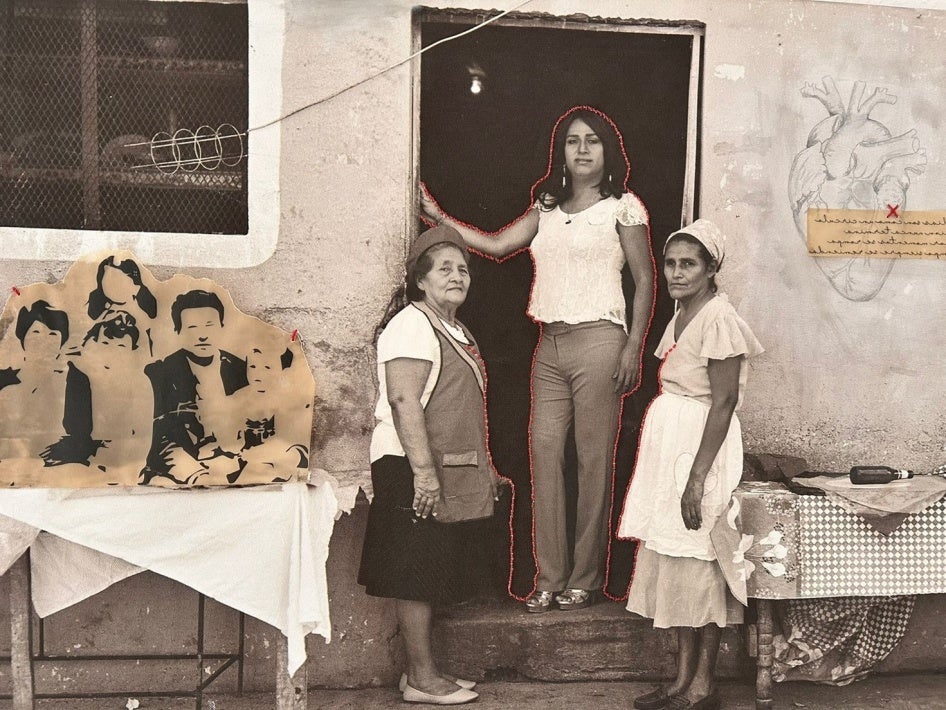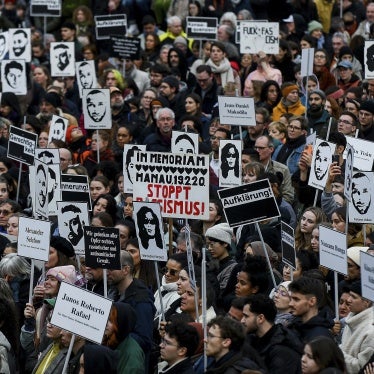(Villahermosa) –The lack of a legal gender recognition procedure in Mexico’s Tabasco state creates barriers for transgender people in employment, health, education, and access to banking, Human Rights Watch and Community Center for Inclusion said in a report released today. Tabasco should create a simple administrative procedure to allow trans people to accurately reflect their self-declared gender identity on official documents.
The 60-page report, “‘I Just Want to Contribute to Society’: The Need for Legal Gender Recognition in Tabasco, Mexico,” documents the pervasive socioeconomic disadvantages that trans people experience due to a mismatch between their gender and their identity documents. A lack of accurate documents, often in combination with anti-trans bias, has led to discrimination, harassment, and violence for trans people.
“Mexican law unequivocally recognizes trans people’s right to gender recognition and any delay by Tabasco’s authorities to reform its relevant laws and policies unnecessarily prolongs the hardships that trans people face in daily life,” said Cristian González Cabrera, senior researcher at Human Rights Watch. “The Tabasco authorities should send a strong signal that they respect the rule of law for all by upholding trans people’s right to self-identification and nondiscrimination, as many other Mexican states have already done.”
In 2019, the Mexican Supreme Court issued a landmark ruling with clear guidelines on legal gender recognition. The court said that, in order to comply with the constitution, authorities should ensure trans people can update their legal documents through an administrative process that “meets the standards of privacy, simplicity, expeditiousness, and adequate protection of gender identity.”
Twenty-one Mexican states have already reformed their laws and policies to comply with the court ruling. Tabasco has not.
In 2023, Human Rights Watch and Community Center for Inclusion interviewed 23 transgender people in Centla, Jalpa de Méndez, Tenosique, and Villahermosa, Tabasco. Most reported discrimination by potential employers or in the workplace. In some cases, discriminatory treatment only began after potential employers realized that the person’s identity documents did not match their physical appearance.
One trans woman from Jalpa de Méndez, who graduated with a degree in psychology in 2018, expressed her frustration: “I can’t practice my career. I graduated, but I continued working at [a retail company]. Even when I brought photos and papers [as proof of identity], it was always very complicated for employers.”
Most of those interviewed said that they also faced discrimination at health care facilities. Hospital staff, including doctors, regularly exposed them as transgender by calling out their legal (or “dead”) names in waiting rooms, subjected them to onerous questioning about their identities, humiliated them and, in some cases, openly mocked them.
Some interviewees had attended a university in recent years or were currently enrolled. All described discriminatory treatment from professors and fellow students, including harassment, bullying, and other targeting due to a mismatch between their legal name and gender. Most withstood the discrimination, albeit with mental health repercussions. Many said that harassment and bullying had also been part of their primary and secondary school experience.
A trans man from Centla said he stopped attending university classes altogether because it was “unbearable” due to discrimination.
Those interviewed also faced obstacles carrying out financial transactions, hampering their economic rights and activities. In many cases, bank employees refused to process transactions because they did not believe the identity documents trans people presented actually belonged to them.
Such discrimination occurs in a broader context of violence. According to Mexican authorities, at least three trans people were killed in Mexico in the first two weeks of 2024. In August 2023, the body of Karina Gómez, a trans woman from Villahermosa, was found in the Carrizal River with a concrete block tied to her feet. In February 2024, the body of Elisa Cortez, a trans woman originally from Tenosique, was found on the side of a road between Villahermosa and Cárdenas with bullet wounds. Authorities say that they are investigating the cases.
International human rights law protects both the right to be free from violence and the right to legal gender recognition. The Inter-American Court of Human Rights, which is charged with interpreting the American Convention on Human Rights, ruled in an advisory opinion that states must establish simple and efficient legal gender recognition procedures based on self-identification, without invasive and stigmatizing requirements. International bodies like the United Nations Human Rights Committee have called on governments to guarantee the rights of transgender people, including the right to legal recognition of their gender.
“For a long time, Tabasco did not recognize many rights for LGBT people, and that only began to change after the Tabasco congress passed marriage equality in 2022,” said Armando Cornelio, director of the Community Center for Inclusion. “Tabasco’s authorities should recognize trans people’s rights and contributions to the community and pass legal gender recognition.”










